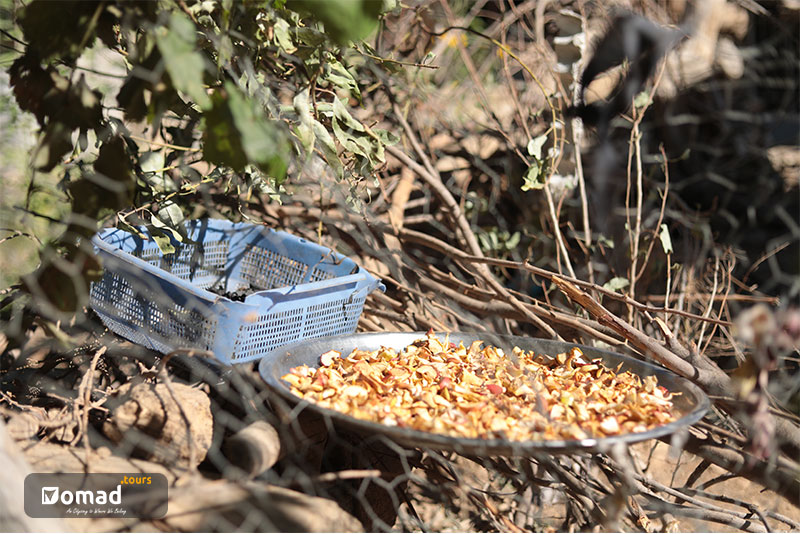Want to be a practitioner of Permaculture? See how Nomads of Iran practice doing it in their semi-annual Kuchs.

What is Permaculture?
Permaculture is made of ‘perma’ which means permanent, and ‘agriculture’. So, it is a kind of agriculture in which permanency is appreciated especially when it comes to nature or environment. In other words, it concerns with the use of natural resources in ways to benefit both humanity and nature. According to Mollison, permaculture is ‘a thoughtful observation’ of nature; “Permaculture is a philosophy of working with, rather than against nature; of protracted and thoughtful observation rather than protracted and thoughtless labor; and of looking at plants and animals in all their functions, rather than treating any area as a single product system.”
Read this or watch the following video to see how nomads are thoughtfully helping the environment by moving their animals on the pastures.
How are Nomads Practitioner of Permaculture?
Nomads have also proved how compatible they are with nature. Following, are the main permaculture principles that can be noticed in nomads’ life as well.
- Nomads are observant and closely tied up with nature. The interaction between nomads & nature is quite amazing. Almost all aspects of their lives are inspired by nature. It is nature that determines their habitat, time of transhumance, and even what they eat. Whenever they face any problem, they seek the answer in nature. Mountains, rivers, plains and every natural element are their divine sources of inspiration. Without nature, life has no meaning for the nomads. One needs to be engaged with nature like nomads to find out how nature offers the best solutions.
- Nomads make the best use of natural resources. Their only sources of energy are natural resources. Therefore, they know how to manage natural resources so that they can use them in time of need. They implement things in ways that benefit both humanity and the environment.
- Nomads are no consumers. The mutual interaction between Nomads & nature and the way they make use of renewable resources make them by far the less consumptive groups.

- Since their lives are fully dependent on nature, they know the importance of conserving it. So, they do their best to produce no waste. With Nomads nothing goes to waste or misuses. They know the value of the things Mother Nature has provided them. When nature gives them grass, they help it keep its Carbon in return. When the herd consumes the majority of soil’s nutrients, they return them to the pastures through manure.
- They care about Nature / Earth. When something is surplus, they return it to Earth. Moreover, by moving their flocks in nature and mimicking it, they try to manage flocks’ rotational grazing. Every now and then, they give a piece of land a period of rest. During this time, all the nomads of the area agree not to use the land so that the plants have enough time to fully grow. This technique is called Ayesh in Persian language.
- They care about animals, specially their own animals. They try to find the best pastures for them. They know how important it is for the herd to have movement, so every day they take them to surrounding pastures, no matter how far they might be, or how long it may take. Even the mere Kuch is to the benefit of the animal & nature.
- They care about the other nomads. When they have more than enough of something, they share it with others. Nomads have always been known for the close and supportive relationship they have developed among themselves.
- Nomads’ life has many ups and downs. Sometimes, specially during kuch, they face some unexpected challenges. Whether they are big ones or small, Nomads have their own way to deal with difficulties. Each tribe has a Kalantar[1]. When a problem comes up, he is the one who is responsible for solving it. From family feuds to serious difficulties they may encounter while migrating. In the movie people of the wind, one can see how Jafar Gholi Babadi who is the kalantar, decides how to pass the river while the route was completely blocked off. Or, when the newly engaged couples had problems, it was he who settled down the situation and told them what to do.
- When it comes to nomads, diversity is a keyword. Nomads are less than 5% of the world’s population, but they protect 80% of global diversity. So, it goes without saying what an important role they can have on nature. Different nomads of Iran raise different kinds of the animal; sheep, goats, camel, etc. Even two neighboring nomads may have two different kinds of sheep. They also plant rice, lentil, and some other legumes when they are not doing transhumance.
[1]Head of the tribe
